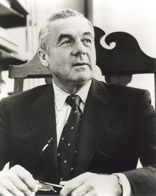Theodore W. Kheel Center on the Resolution of Environmental Interest Disputes
 The Kheel Center on the Resolution of Environmental Interest Disputes was created in April of 2008 with the support of a generous grant by the well-known labor arbitrator and mediator Theodore W. Kheel. The Center’s work focuses on environmental interest disputes of critical importance to communities, states, and regions that require innovative resolution strategies and forums. Its mission is to train law students and lawyers in the skills that practicing attorneys need to address conflicts arising from climate change and other critical environmental and land use issues that may not be amenable to resolution by traditional means of adjudication.
The Kheel Center on the Resolution of Environmental Interest Disputes was created in April of 2008 with the support of a generous grant by the well-known labor arbitrator and mediator Theodore W. Kheel. The Center’s work focuses on environmental interest disputes of critical importance to communities, states, and regions that require innovative resolution strategies and forums. Its mission is to train law students and lawyers in the skills that practicing attorneys need to address conflicts arising from climate change and other critical environmental and land use issues that may not be amenable to resolution by traditional means of adjudication.
The Kheel Center focuses on the practices of lawyers whose clients’ conflicts are best resolved outside traditional litigation and adjudication forums. Distinct skills are needed to resolve conflicts that are precipitated by climate change and acute pressures on land and non-renewable resources where rights are less developed, multiple parties are involved, and scientific facts are imprecise. The central question the Kheel Center answers is how to use the experience and skills of alternative dispute resolution (ADR) professionals to train law students and lawyers who counsel the growing number of clients that are involved in these emerging environmental conflicts.
The Center offers:
- CLE programs in conjunction with Pace's Center for Continuing Legal Education
- Conferences, seminars, and clinics
- Academic law school courses
- Research and publications
- Advocacy
The Center has:
- Hosted a conference on “Rediscovering Sustainability Law”
- Conducted a sea level rise training program to educate members of Planning, Zoning, and Conservation Commissions, as well as other key community leaders
- Collaborated with noted ADR specialists and Pace Law School students to publish a special edition of the Pace Environmental Law Review entitled “Environmental Interest Dispute Resolution: Changing Times-Changing Practice”
- Worked with students in Pace’s joint J.D./M.E.M. program with Yale to develop cutting edge tools that may be used by state and local governments to adapt to and manage the effects of climate change
- Established a collection of local ADR regulations on land use conflicts in collaboration with the Consensus Building Institute to encourage the non-adversarial resolution of land use and environmental disputes
Please click here for a list of helpful links to EDR related organizations, publications, and mediators.
